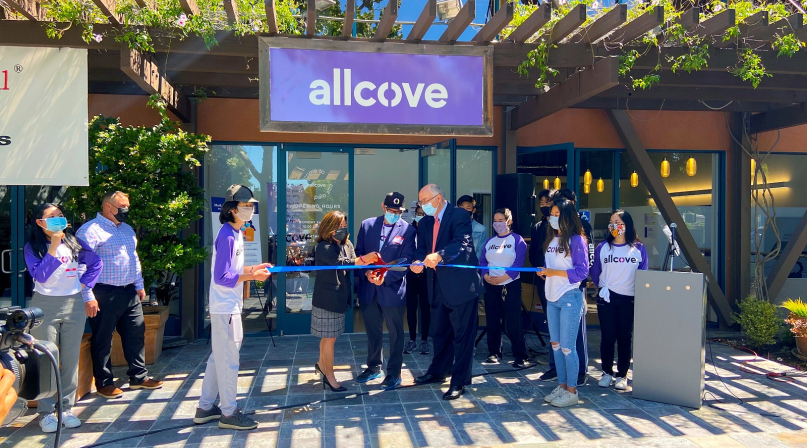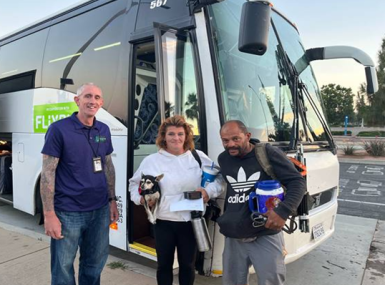| Problem: |
hildren of this generation face more than any before, leading to a high rate of anxiety, mental health problems and suicide with little access to healthcare. |
| Solution: |
Create wraparound services to support children and teens before they encounter a crisis. |
Santa Clara County, Calif. has taken a revolutionary new approach to caring for the mental health of its youth with the first-in-the-country integrated care center, which opened last year. The center is designed for youth ages 12-25, who can walk in the door and speak to qualified professionals regardless of their ability to pay, referral status or other barriers.
“Too many of the models in place really don’t serve young people well until there is a moment of crisis, and we need to be helping these kids and young adults at an earlier opportunity” said Supervisor Joe Simitian, who first sponsored the program in 2016, including it in the county budget.
Simitian, a member of the Board of Advisors for Adolescent Counseling Services, first heard of the Allcove (also spelled allcove) program, then called Headspace, from Dr. Steven Adelsheim, a child psychiatrist and director of the Stanford Center for Youth Mental Health and Wellbeing. Adelsheim pitched the concept in December of 2015. The two have worked tirelessly to create the facilities for allcove in Palo Alto and San Jose, which opened their doors in June.
Simitian and Adelsheim aimed to create early mental health intervention systems in a way that is welcoming to teens and fights the stigma of mental health treatment.
“Half of all mental health conditions have their onset by the age of 14 and three quarters by the age of 24,” Adelsheim said. “We really don’t have the public mental health system in place to do early detection and intervention for the half of all young people that are developing these mental health conditions.”
With the increased strain on children caused by the pandemic, the CDC has seen an increase in mental health-related emergency cases.
The proportion of mental health–related visits for children ages 5–11 increased 24 percent and for ages 12–17, it was 31 percent, the CDC noted in a 2020 report.
A survey conducted by the Lurie Children’s Hospital of Chicago saw a sharp increase in parents concerned about the mental health of their children, with 71 percent of parents saying the pandemic hurt their children’s mental health.
To properly face the challenges made worse by the pandemic, the Allcove facilities have trained professionals available in person or by telemedicine to help with physical or mental care. Through the multi-disciplinary specialists on site, youths can find peer support, mental and physical health counseling, substance use services and more.
Allcove has a robust presence on social media, with advertisements and information readily available to get the word out about its existence to young people.
Allcove also partners with youth groups, and its representatives attend and host events, speak at local schools and use targeted marketing tools to raise awareness of the program.
The Palo Alto location is easily reached through the bus system and is situated in a critical area which has long faced the highest number of youth suicides in Santa Clara County.
“We’re staffing this up with the idea of trying to see about 1,000 young people annually at each center,” said Adelsheim, who has worked in the field of child psychiatry since 1990 and has worked for the last nine years on creating the Allcove program.
The county used funds generated by a 1 percent income tax on personal income in excess of $1 million in California known as the Mental Health Services Act. The county sought approval to use their portion of the funding to create Allcove, and the pitch immediately attracted the attention and support of the state.
“We’re certainly seeing more young people coming in with increasing levels of anxiety, increasing levels of depression, increased concerns about grief and loss because of the pandemic” said Adelsheim.
“Many people have lost family members or loved ones, and also have lost really important life milestones to be able to celebrate. These issues are already there but I think… they’ve been heightened by all of the struggles our families have faced over the last several years.”
One of the challenges to providing wraparound services and early intervention care in the United States is funding and recovering expenses, said Simitian. Adelsheim said it will be critical to the success of the model in the United States to foster partnerships with healthcare and insurance providers.
In less than a year since opening, Allcove has garnered the support of state legislators who have opened funding streams to replicate the program as well as researchers studying the two locations.
In 2022, nearby Orange County will see a facility modeled after the Santa Clara program open at the University of California at Irvine. Four additional Allcove projects have been funded by California’s Mental Health Services Oversight & Accountability Commission, one in San Mateo County, one in Sacramento County and two in Los Angeles County.
Last year Simitian noted: “Time after time, the saddest part of the story is that a kid didn’t reach out earlier, didn’t have the opportunity to get help when they really needed it.”



